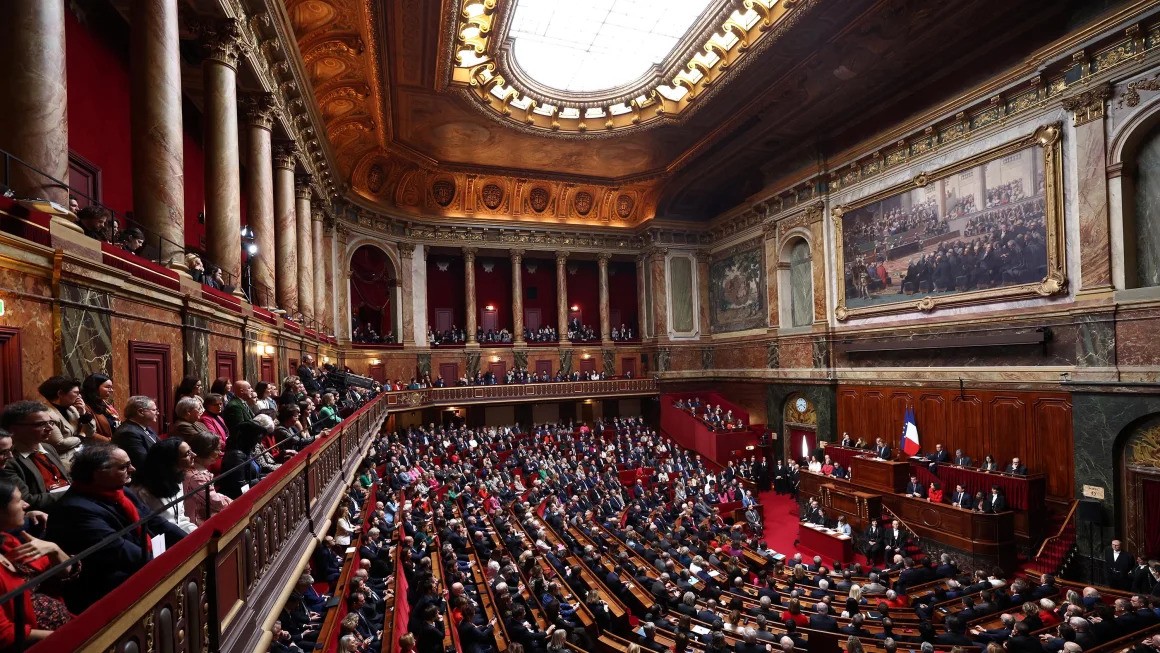France Enshrines Abortion As Constitutional Right In Historic Versailles Vote
France enshrines abortion as constitutional right in historic Versailles vote. Out of the 925 eligible MPs and senators, 780 supported the amendment, granting women the "guaranteed freedom" to choose abortion.
Author:Paula M. GrahamReviewer:Rhyley CarneyMar 05, 2024619 Shares13.7K Views

France enshrines abortion as constitutional right in historic Versailles vote. Out of the 925 eligible MPs and senators, 780 supported the amendment, granting women the "guaranteed freedom" to choose abortion. Thunderous applause filled the chamber upon the announcement of the result on Monday.
In central Paris, the Eiffel Tower was illuminated to celebrate the occasion. While the measure had previously passed both the upper and lower houses, the Sénat and the Assemblée Nationale, final approval by parliamentarians at the joint session at Versailles was necessary to bring about constitutional change.
The prime minister, Gabriel Attal, told those gathered in the opulent Congress Hall in the palace’s Midi wing: "We are haunted by the suffering and memory of so many women who were not free. We owe a moral debt [to all the women who] suffered in their flesh."
“„Today, the present must respond to history. To enshrine this right in our constitution is to close the door on the tragedy of the past and its trail of suffering and pain. It will further prevent reactionaries from attacking women. Let's not forget that the train of oppression can happen again. Let’s act to ensure that it doesn’t, that it never comes this day. I say to all women within our borders and beyond, that today, the era of a world of hope begins.- Gabriel Attal
Mathilde Panot, an MP from the hard-left France Unbowed party, who proposed including abortion rights in the constitution, expressed during the meeting that it was "a promise … for all women fighting [for them] everywhere in the world."
She added: "Your fight is ours. This victory is yours."
President Emmanuel Macron stated that he had pledged to ensure the irreversible nature of women's freedom to choose abortion. By writing the right to abortion into the constitution, which required amending the 17th paragraph of article 34 defining the law and its boundaries, it was perceived as a means of safeguarding the law that decriminalized abortion in France back in 1975.
During the national assembly debate on the law in January, Justice Minister Éric Dupond-Moretti emphasized to MPs that abortion rights were not just basic freedom, "because they allow women to decide their future." Aurore Bergé, the minister responsible for equality and combating discrimination, remarked, "This vote will be one of the most important and remarkable of this parliament."
Once the two houses had agreed on the wording of the legal text, President Macron had the option to either hold a national referendum or convene a joint parliamentary "congress" consisting of 577 MPs and 348 senators at Versailles, where it required three-fifths of votes cast to pass.
Monday's session marked the first time since 2008 when Nicolas Sarkozy took steps to modernize French institutions, including limiting presidents to a maximum of two consecutive five-year terms in office, that the constitution had been amended. Since 1958, the parliamentary congress has convened 16 times, resulting in 21 changes to the constitution.
The congress was presided over by Yaël Braun-Pivet, from Macron’s Renaissance party, who holds a position equivalent to the speaker of the lower house, and parliamentarians were seated in alphabetical order. Leaders of 18 political groups - 10 from the lower house and eight from the upper - were each invited to speak for five minutes on the amendment before the vote.
The text will now undergo authentication with a "seal of congress" before being sent to the government. Macron is scheduled to attend a ceremony to finalize the constitutional amendment on Friday, which coincides with International Women’s Day.
The momentum for the constitutional change gained traction following the 2022 decision by the US Supreme Court to overturn Roe v. Wade, a landmark ruling that had acknowledged women's constitutional right to abortion and legalized it nationwide.
Right-wing senators from the Républicains party opposed an initial attempt to amend the constitution in October 2022. Later that year, the French parliament voted to extend France’s legal limit for terminating a pregnancy from 12 to 14 weeks, responding to concerns that thousands of women were compelled to seek abortions abroad annually, in countries such as the Netherlands, Spain, and the UK. Anti-abortion demonstrators gathered near the palace in Versailles to protest against the constitutional change.

Paula M. Graham
Author

Rhyley Carney
Reviewer
Latest Articles
Popular Articles
